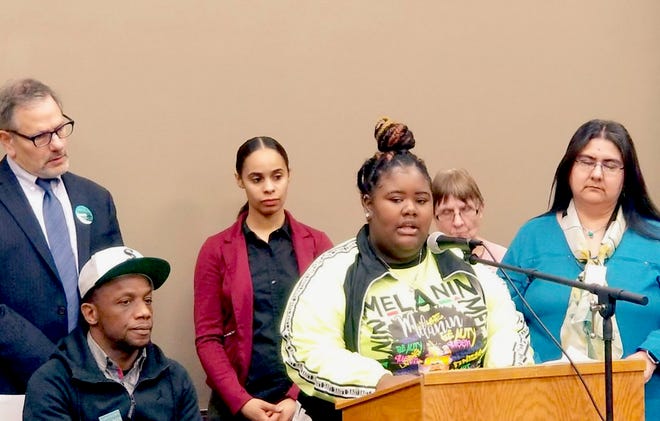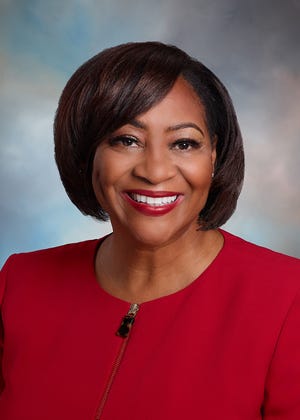Originally shared on USA Today by Carli Pierson on Oct. 11 2022, click here to read.
The Racial Equity 2030 challenge was open to those with ideas from across the globe. These are the five nonprofit organizations selected by the W.K. Kellogg Foundation.

A change-maker is anyone, anywhere, who takes creative action to solve social and economic problems in their community and beyond.
One of the original American change-makers, Will Keith Kellogg, did precisely that in 1930 when the inventor of the famous ready-to-eat breakfast cereal established the W.K. Kellogg Foundation. The foundation has spent nearly a century working with communities to help vulnerable children in the United States and the Americas thrive in work, school and their daily lives.
In celebration of the foundation’s 90th anniversary, in 2020 the organization put forth a$90 million award – the Racial Equity 2030 challenge – as a call for bold, sustainable and high impact solutions to creating a more equitable future for kids, families and communities.
The Racial Equity 2030 challenge was open to those with ideas from across the globe. With the prize money and support from the foundation, winners will incrementally broaden their projects over the coming years. The goal? To create societal transformations that will eliminate racial inequities and improve the lives of children and families.
These are the five winners selected by the W.K. Kellogg Foundation after a multilayered evaluation process:
Brazil’s education system initiative

ActionAid Brazil. While a majority of Brazilians now identify as Black or mixed race, glaring, long-entrenched socioeconomic inequalities persist between the Black, mixed and Indigenous populations vs. white populations. One institution notorious for perpetuating societal inequalities is the education system, even as more children are attending school – with racially disparate results. This could be, in part, because nonwhite Brazilians are not represented in their textbooks, there is no system in place to reach them to value their own culture, and less is expected of them because of their racial or ethnic identity.
W.K. Kellogg Foundation CEO: Racial Equity 2030 awardees give me hope
Action Aid’s bottom-up anti-racist education system initiative will train more than 700,000 educators across nearly 50,000 schools to empower Afro-Brazilians, Indigenous people and other nonwhite communities to tell their own stories and head up racial equality work in their own educational institutions and communities. This will provide the groundswell necessary to begin a societal transformation, with a goal of letting every student learn the full history of Brazil and its enduring legacy of racism and see themselves positively depicted in textbooks.
Chicago youth’s mental health

Communities United. This racial justice organization in Chicago is led by survivors for young survivors struggling with the effects of systemic racism on their mental health. The Healing Through Justice initiative will support local youth leaders working to heal themselves, their families and communities from the harmful effects of the injustices while also working toward racial equity across a variety of systems: from schools to community health centers, and with local youth at the forefront of changing the systems intended to support them.
Projects of Communities United and its coalition partners include:
- Training more than 100 youth fellows in storytelling and skill-building.
- Tapping 4,000 youth leaders for community and neighborhood engagement.
- Developing 3,000 youth fellows on mental health and wellness strategies.
By investing in young people directly affected by factors detrimental to their mental health and overall success – poverty, the school-to-prison pipeline, gun violence, and pervasive and historic systemic racism – the program aims to create healing in families and communities that historically have been harmed.
Indigenous peoples’ land rights

Indian Law Resource Center. Mexico holds the unfortunate title of being the world’s deadliest country for environmental and land defense activists. It’s a regional problem – Latin America made up over two-thirds of the 200 environmental and land activists killed worldwide last year. These activists, often leaders in their communities, regularly come from Indigenous, rural areas that are on the frontlines of the climate crisis. From the Mapuche in Patagonia to the Yaqui of northern Mexico, Indigenous communities have been subjects of centuries of systemic racism and oppression: their land repeatedly stolen; their rights denied; their traditions, languages and values constantly under threat.
Secretary-general of the U.N.:5 steps to help us kick our fossil fuel addiction and save the planet
While Indigenous peoples are the caretakers of the land (more than half of the world’s land is managed by Indigenous peoples, and land cared for by Indigenous peoples has better environmental outcomes), they hold a mere 10% of the government-recognized legal titles to their land. The ILRC has joined forces with several other organizations to advocate for, and secure legal title to, these groups’ native lands. This initiative has two critical outcomes:
- Providing vulnerable Indigenous groups and local communities with security against displacement – one of the most insidious effects of systemic racism.
- Providing Indigenous peoples with equal opportunity to thrive on their own land, and conserve the habitats that we all need protected in order to stave of an increasingly dangerous climate crisis.
Victims of environmental racism

Namati. Persistently unsafe and unreliable drinking water in Jackson, Mississippi. Lead poisoning from a smelter that recycled batteries in Kenya. Exploitative land investors in Sierra Leone. These are examples of environmental racism – a type of systemic racism where communities of color shoulder disproportionate health hazards as a result of policies that force them to live and work on or near sources of toxic waste such as open sewage systems, garbage dumps, mines, power plants, etc. It is one of the most pressing social justice issues of our time.
In Jackson, Mississippi:Water crisis isn’t just a moment. It’s a systemic catastrophe.
Access to legal assistance, especially in low-income or rural communities, is of the utmost importance for communities suffering from systemic, institutionalized environmental racism. Namati, its partners and members of the Legal Empowerment Network partner with specially trained paralegals to help communities on the front lines of economic racism use the rule of law to advocate for themselves, their families and their communities. Equipped with vital legal assistance, and connected to a network of national and global coalitions, Namati’s change-makers drive innovation and social transformation from the bottom up – making their immediate environment healthier, safer and more equitable, while also influencing the environmental public policy and its implementation in a way that is sustainable.
Restorative justice for youth in Hawaii

Partners in Development Foundation. One of the legacies of colonialism in Hawaii is its colorized corrections system. Not only does Hawaii have one of the highest rates of incarceration in the world, but Native Hawaiians and other Pacific Islander youth are also disproportionately represented in it. While Native Hawaiian youth make up less than a third of the youth population, they account for more than 50% of those incarcerated.
Policing the USA:An infamous adult prison is no place for incarcerated kids
The Partners in Development Foundation along with a coalition of local nonprofit organizations on the ground are working to counteract decades of systemic racism that has resulted in too many youth traumatized by drug and alcohol abuse, the foster care system, crime and violence. As an alternative to the westernized, punitive approach to juvenile corrections, this initiative shifts resources destined for juvenile justice facilities to Indigenous forms of restorative justice. These programs, including a community farm, help transform lives and communities by training youth healers to be change-makers, and focusing on community-driven and culture-positive support centers. The goal is ending youth incarceration in Hawaii by 2030.
Ambitious goals for big issues

The projects are ambitious. But so is the goal of the W.K. Kellogg Foundation’s Racial Equity 2030 challenge.
“Each of the awardees isn’t just working on projects that will improve the lives of the communities they serve directly,” La June Montgomery Tabron, chief executive of the W.K. Kellogg Foundation, wrote in a column for USA TODAY Opinion. “They also are ambitious, creative efforts that attack the roots of racial inequality and could be scaled to deliver transformative change for communities across the globe.”
The founder of the foundation behind this challenge revolutionized the way we eat breakfast. I’m going to believe his philanthropic legacy can also help heal communities and improve the lives of children.
